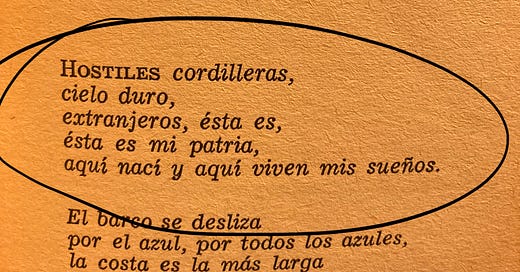To Maruja and Isa
It was getting late and the train to Amsterdam would be crowded, filled to the top with the responsible, those that were done with their work in time and had booked the nice rooms early in the day. He knew that by now the ones left will not please, and once again he would have to secure a bicycle to later go on finding his friends stationed at their bar of choice. Nothing impossible, nothing that he had not done one and a thousand times before. But today he had no gumption left. He could stay in Utrecht anyway. Browsing the app he found a couple of places at a walking distance, and it wasn’t raining. Choose one, turn off the terminal, grab his one bag and walk. It wasn’t so bad to walk in the fall after all. Tomorrow he’ll remember to book in time in Amsterdam, tomorrow he’ll see friends and share a drink.
Tomorrow.
Having logged in by the main door, at entering his quarters they already looked as he decided last time he thought about it. The real thing, as always, was in the deep vaults of one or another museum. If he could make the time, he could travel to whichever it was, and perhaps look at the originals, but why would he? He could choose whichever painting or sculpture he wanted, and they would be printed and in place at the moment of opening the door, or few minutes later. Nowadays he was going for Rothko at one side of the room and some silhouettes of Klein at the other. The colors spoke to each other, and some thinking on them every day made him feel closer to what Rothko actually meant, helped by the mockery across the room, the figures of women long dead reveling in patented blue painting. The contrast seemed to him a modern version of the stiff zen monks, considering a koan, and the sharp stick of their master striking their shoulders, reminding them all that meditation is also a lie.
Anyway, all this will come later. Right now was to enter the rooms and take a shower and get to make this house his, make himself be himself. The time had got smaller with time, but he still needed few minutes to re-learn that these were his rooms, for real. It did not matter than a day before they harboured somebody else, it didn’t matter either that tomorrow they would look different and will host other people. Right now and for all practical purposes, this was home. The door would not open for nobody he wouldn’t want. The subtle smells of whatever he cooked yesterday were there too, and if he would pay attention he would still smell the tang of the peppers and the low notes of the smoked lard.
Home.
In his middle age, he did wonder about the times he had sleep in between the actual same walls. Not being a nomade by nature, staying frequently in the same few cities, it is possible that he ended up in the same place more than once, but he didn’t noticed. All what he defined as home was, nowadays, stored in a bunch of files in a server somewhere. The location didn’t matter anymore. He, we all, were freed from the anchor of home and nation when they went digital. He was born in Argentina, where he learned to love long streets, long as the ones that were shown in the windows right now. His first cooking he did in Caracas, and at any minute now a portion of sweet chilies will reach his door, to cook Caribbean again. Rothko and Klein he learn to look at when working in Basel. All those places had been their homes, and they were all here, right here and right now. By leaving the places he had gained them all. The very idea of home had become useless. What was the point of a physical space if he could carry, recreate, all what he loved in his room for that night? No need for a home, when home was at the tip of his fingers, in a digital record.
Once he heard that the same dislocation happened when communication went digital. Friends that were separed by thousands of kilometers could see each other in a screen every day, if they would wanted to. Texting placed the thoughts of friends at the reach of a phone, of a keyboard and a screen. In few years we were all in touch, if we wanted. The change should have been huge, he thought. And yet, it wasn’t the same. To smell, to really touch another person, resisted the onslaught of technology, and we all insisted to see each other in the flesh. But not with the houses. The digital house revolution has erased all that futile sense of homeland, of belonging to a place. We carried our home with ourselves nowadays, no doubt. So he dried the tear in his eye, at reading Neruda. Nonsense, he though.
Nonsense? he asked.



